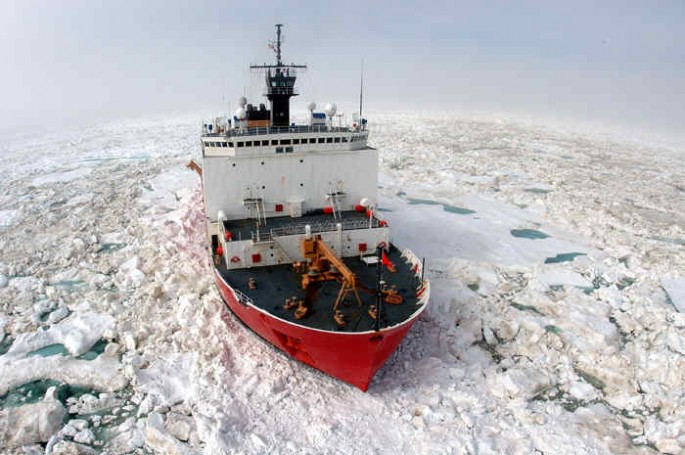For the first time ever, a United States Coast Guard icebreaker ship has already broken its way to the Arctic region or the North Pole which makes it the first American surface ship to reach the top of the world according to local officials on Tuesday.
The U.S. Coast Guard Cutter Healy is originally based in Seattle, have arrived at the Pole on September 5, Saturday according to the Coast Guard.
Apart from the U.S., many nations such as Canada, Norway and Russia are now involved in a race to reach and develop the region since unprecedented melting of ice from global warming reveal much viable new sources of oil, gas and mineral deposits including crucial shipping routes such as the Northwest Passage.
The Coast Guard said in a statement that the Arctic region is now opening up to new developments that can lead to industrialization over the region. Data that will be consolidated on board the Healy during this scientific cruise mission will become crucial in gaining a better understanding how Arctic scientific processes work and to exercise responsibly stewardship over this region.
To date, the United States only has three icebreakers where only two are in operations.
Just last week, U.S. President Barack Obama declared to speed up processes regarding the construction of a new icebreaker that is highly essential in promoting a U.S. show of force over the Arctic region where more nations have growing interests in.
This is the fourth time that a U.S. surface vessel has arrived at the North Pole and the first ship to reach the region without any accompanying military forces.
The United States now have submarines that have extended their routine routes to the Arctic icepack and on occasion, to the surface of the North Pole.
The U.S. Healy icebreaker is measured at 420 feet long and weighs about 16,000 tons, possessing an engine horsepower of 30,000 where it has the ability to break over 10 feet of ice. The crew and passengers aboard the Healy include 145 members who are also scientists as well to study and examine further the geochemistry of the region's oceans.



























